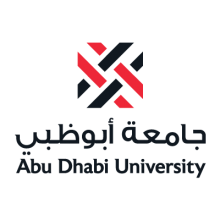Research within Arab universities has become too disconnected from industry and national priorities, sector leaders have warned.
Speaking on an animated panel at the Times Higher Education Arab Universities Summit at the University of Dubai, academics warned that the region’s scholarly output risked becoming a “sausage machine” that takes no account of local social and economic needs.
Ahmed Abdel-Meguid, associate provost for enrolment management at the American University in Cairo, argued that universities should foster closer relationships with industry to establish research priorities and should also make their papers more accessible.
“I think it all starts with having continuous multi-stakeholder conversations between academia, the market and industry. In many cases, academic institutions, for a variety of reasons, do research that is geared towards certain objectives but not entirely aligned with the markets,” he said.
He added that universities needed to “establish mechanisms of translating academic papers into practical implications”. Scholarly journals are read primarily by other academics, and not by those within industry who might benefit most from them.
Barry O’Mahony, provost at Abu Dhabi University, said universities have “lost our way” in terms of their relationships with industry.
“When schools started, the whole system was dedicated around what happened in industry. Even when you have summer holidays for schoolchildren, one of the reasons they were introduced was because farmers wanted their children back in the summer to help pick the crops, so we’ve lost our way somewhere there.”
Consequently, universities in the region need to “reinvent ourselves and get a better model”, he argued.
Research should also be more closely aligned to national priorities, argued Nariname Hadj Hamou, chief executive of the Center for Learning Innovations and Customized Knowledge Solutions.
“Alignment between national and regional research priorities is important. We don’t want to be producing research papers like sausage machines that have no impact. [We need to be] making sure that we align our research with national regional priorities, and we actually have meaningful ways of assessing research impact.”
Dr Abdel-Meguid agreed, adding that “there have to be other ways to measure” the impact of research beyond the number of citations it receives, “to capture the actual impact of research on communities and societies”.
Register to continue
Why register?
- Registration is free and only takes a moment
- Once registered, you can read 3 articles a month
- Sign up for our newsletter
Subscribe
Or subscribe for unlimited access to:
- Unlimited access to news, views, insights & reviews
- Digital editions
- Digital access to THE’s university and college rankings analysis
Already registered or a current subscriber? Login











